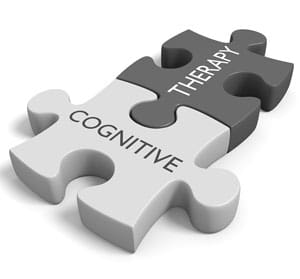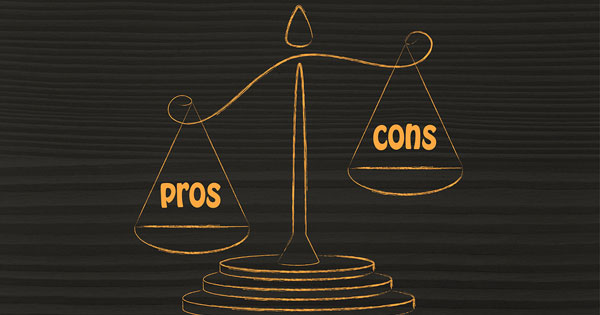The Benefits and Criticisms of Cognitive Behavioral Therapy
by Peter Sacco
Cognitive Behavioral Therapy can be a therapeutic tool for helping individuals who suffer from mental health disorders and addictions. As a result of its simple, easy and hands on nature (changing thoughts in the here and now), individuals and therapists alike boast of its tremendous benefits.
In this article, I will examine both the benefits and criticisms of using cognitive behavioral therapy.
This is part three of a three article series covering this therapy. CBT is considered a separate and distinct therapy from hypnosis, although many professional therapists have both in their toolbox for particular situations and clients.
The other articles in this series are Cognitive Behavioral Therapy (CBT) 101 and Uses of Cognitive Behavioral Therapy.
CBT itself can be used in individual sessions as well as support groups. Some people do better when they attend support groups that are CBT based as they meet with others with similar disorders and concerns who validate them, and can see progress in others and receive group coaching.
RECAP OF CBT AND ITS USES:

First it helps teach individuals to assume a sense of self-empowerment – that is assuming responsibility for thinking the thoughts that lead to the feelings they are experiencing. CBT asserts that thoughts lead to feelings.
The second aspect of CBT is the emphasis it places on the client’s self-efficacy. The individual assumes all responsibility for not only what they think leading to what they feel, but also who and what they want to become. CBT teaches individuals they have the accountability to choose whatever they want to think and feel.
The third aspect of CBT is that it teaches individuals to live in the here and now. As they think so will they feel.
Therapists can obtain immediate impact on a client as it can change their mindset.
CBT is commonly used in brief intervention and crisis intervention (working with someone who is in mental crisis or suicidal) because it has the ability to have an immediate influence on one’s present cognition. You see when someone’s thought process or cognitions are negative or irrational then they are said to have a faulty thought process.
This faulty thought process leads the individual to think negatively, make bad choices, and produce feelings of fear, anxiety, pessimism and even depression.
CBT can be used in some patients to help them overcome the current patterns leading to bad or poor choices in the immediate and short-term now.
THE ADVANTAGES OF CBT:

This means clients get specific education and practical coping skills on how to cope with their long-term problems – anxiety, depression, irrational thinking, addictions, etc.
It’s important for individuals to learn new techniques and strategies in order to cope.
Their old ways of thinking aren’t effective in dealing with these problems, and in many cases have led to their problems.
With cognitive-behavioral therapy the goal is to teach individuals how to anticipate, recognize and cope with actual and potential negative thought patterns by increasing one’s awareness and choice about behavior, capacity for coping, and self-control, and confidence/mastery.
When using CBT, individuals are taught ‘self-efficacy’. CBT focuses on two aspects of client behavior and cognition, one’s motivation to change, and the skills to facilitate and maintain changes. CBT is very beneficial in increasing the chances of a habit change being maintained in the individual, and this lifestyle change being successful!
CBT is psycho-educational in nature so clients get educated as they heal!
A second advantage is when CBT is used in groups, clients may learn how to work in a team and may see the effectiveness of collaborative, cohesive group work. These specific skills can help them overcome their addiction problems, negative thinking patterns while leading to help influence their social lives.
For those socially inept, they learn how to socialize acceptably which helps build self-esteem.
The third advantage with CBT it’s effective in working with people who have concurrent disorders. It’s a treatment for people who have mental health disorders and addictions problems (concurrent disorders/dual disorders). CBT helps people who have anxiety, depression or post-traumatic stress syndromes while at the same time, treating dependencies and addictions, such as drug or alcohol addiction which individuals use to cope.
The final advantage of CBT is the lack of spiritual emphasis which some counseling-based treatments use, especially in treatment groups that are spiritual or 12 step based.
When used effectively, CBT emphasizes self-efficacy, personal autonomy and skills. Some individuals want “science-based” behavioral strategies that are proven and CBT is the closest type of treatment approach that assures clients that what they are getting is reliable and valid.
So, what are the cons or disadvantages to CBT?
THE DISADVANTAGES OF CBT:

Cognitive behavioral therapy is highly geared towards the acquisition of new skills, mainly through required homework assignments.
Unfortunately, many individuals can find this very difficult to accomplish.
Some clients don’t possess the organizational or discipline skills to complete the homework tasks on their own.
Others are simply not motivated enough, or view the assignments as nothing more than added burdens which they choose not to complete, and which undermines success in therapy.
Due to the structured nature of CBT it may not be suitable for people with more complex mental health needs or learning difficulties.
Also, there are literacy issues when clients are from different ethnic backgrounds, or have limited reading and writing skills.
Some of these issues can be handled by: embracing the individual’s resistance to change by teaching individual’s new organizational skills to help them cope with their chaotic and disorganized lives.
CBT teachers can simplify the homework assignments if they’re too complex and challenging.
This would be best achieved by explaining and clarifying the assignments with each individual according to their learning skills set. It’s important to recognize no two individuals are the same or think completely alike, so this is one of the barriers that needs to be overcome when using homework assignments.
You have to take into account one’s educational level and ability to comprehend what is being taught to them.
Remember, CBT is strongly based on learning, much like an educational course. Individuals are taught skills, strategies and mindsets they’re going to use to change old thinking patterns. Their old thinking patterns may have been there a long time, with years in the making.
With that said, there’s definitely going to be ‘harsh’ resistance to change, even when something isn’t working to their advantage – often times, one’s resistance to change parallels itself with ‘laziness’.
People become lazy thinkers, and are okay holding on to their faulty patterns if it means not having ‘to work’ on themselves! This will definitely be a challenge in trying to get some to change, especially those who don’t readily embrace change, and shun ‘education!”
But when you weigh the advantages and disadvantages of CBT, you can see the advantages tilt the scales in CBT’s favor! The greatest benefit is you don’t have to rehash the past and relive painful feelings. Instead clients can be trained to think in the moment and change their thought patterns right there and then.
The greatest strength of cognitive behavioral therapy is teaching people to live in the present.
So many therapies focus on a client’s pasts – what they believe they did wrong, regrets, and shame they continually carry, and ‘trying to undo’ past mistakes. When this carries into the present moment, they’re still living in the past, which becomes their burden.
Conversely, there are those who place too much emphasis on the future, they miss living in the present moment, and feel ‘out of control’. CBT teaches individuals not only how to master their thoughts, but live from a place of moment to moment awareness – thinking.
This is truly the only control they have over their lives…their thoughts.
If you want to discuss working directly with us on your particular issue to see if we can help and advise you on a next step, then check out our Special Hypnosis Services Programs.
CONCLUSIONS:
Cognitive Behavioral Therapy like many therapies isn’t a silver bullet or one size fits all treatment to overcome mental disorders and addictions. The therapist or counselor needs to determine if this intervention can help the client given their diagnosis and their situation and support environment.
CBT can also be used as part of a patient overall plan. Medication may still be required especially in those with a chronic mental health diagnosis. The motivation level of the patient along with their education-level and family environment has to be taken into account, as there are homework assignment demands.
Private and/or group therapy decision has to be determined, with again looking at the patient and their ability to do the work outside of therapy sessions to be successful.
CBT is also used for crisis intervention where its determined the individual’s thought process is faulty and because of this they’re in danger of making a life-threatening choice. Only a skilled therapist can make this determination.
Hypnosis can also help in overcoming addictions and faulty thought process especially when it comes to smoking or unhealthy eating. Because of this in certain circumstances a therapist can reach into this along with CBT techniques to provide an alternative or in combination with another therapy.
Finally, as CBT is focused on helping an individual live in the present then Mindfulness and Meditation can also be employed as homework to help not only quiet the mind but provide an ongoing environment to reinforce living in the present.
Consult with a professional to determine the best intervention based on the diagnosis of the patient.
Finally, an often-recommended book by therapists for clients about CBT when used for depression is Dr. David D. Burns’ book “Feeling Good: The New Mood Therapy.” I’ve provided a link to the book below.
I hope this article and series has been helpful. Please let me know in the comment section below.
ADDITIONAL RESOURCES RELATED TO COGNITIVE BEHAVIORAL THERAPY:
Feeling Good – The New Mood Therapy – Dr. David D. Burns >>>
Introduction to Mindfulness – Free At Last Hypnosis >>>
In-Depth: Cognitive Behavioral Therapy – PychCentral >>>
Library of Self-Hypnosis Downloads Products >>>
Peter Andrew Sacco Ph.D.
Staff Editor
Free At Last Hypnosis
CATEGORIES
FEATURED POSTS
Interested in making a significant change in your life and interested in learning more about what I do and how I do it? Discover my hypnotherapy services here or contact me here.

DISCOVER HOW TO START CHANGING HABITS TODAY.
In this free audio hypnosis session, you’ll experience the power of your subconscious mind to begin to change your habits. If you've never experienced hypnosis before then this is a great introduction...


